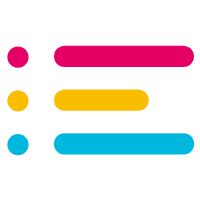Technology
-
PlatON 2.0 White Paper: Decentralized Privacy-Preserving AI Network | Part 5: LATs & Milestones
LATs in PlatON LAT is the native utility token that will capture the value around the trus…
-
PlatON 2.0 White Paper: Decentralized Privacy-Preserving AI Network | Part 4: Applications and Ecology
Applications and Ecology PlatON is working to apply the results of this established resear…
-
PlatON 2.0 White Paper: Decentralized Privacy-Preserving AI Network | Part 3: Technical Architecture
Part 3: Technical Architecture PlatON does not implement the entire privacy-preserving AI …
-
PlatON 2.0 White Paper: Decentralized Privacy-Preserving AI Network | Part 2: What is PlatON 2.0
What is PlatON 2.0 Vision ①[7yA] Combining blockchain and privacy-preserving computation t…
-
PlatON 2.0 White Paper: Decentralized Privacy-Preserving AI Network | Part 1
Abstract ② [ *aY ] In just the past 10 years society has witnessed the transition of analo…
-
[Important Announcement] Samurai 8.1.1 Update Announcement (20210902)
Background Due to the migration of the PlatON Dev Network nodes on September 1, 2021, howe…
-
PlatON Workshop 3 | PlatON Network Consensus Algorithm Explanation
PlatON Grant Hackathon Workshop 3 Speaker: JamesQu, PlatON CTO Theme: PlatON Network Conse…
-
[Anouncement]PlatON PIP-3 proposal passed, network upgraded to version 1.1.0
PlatON Network The PlatON PIP-3 proposal was passed on 30 August 2021 at 14:50. Since the …
-
PlatON Tech Column | P2P Connection Scheme under Group Consensus
This article illustrates a P2P connection scheme under the group consensus. This design ai…
-
PlatON Tech Column | Zero-Knowledge Proof Technology on the Blockchain
Zero-Knowledge Proof (ZKP), was proposed by S. Goldwasser, S. Micali, and C. Rackoff in th…
-
PlatON Grant Hackathon Opens on Hackerlink.io: Share the $170,000 Prize Pool and Learn from the Workshop series!
PlatON, the privacy-preserving AI network, is officially launching its first online hackat…
-
Alaya AIP-17 Proposal Receives High Vote for Network Upgrade to Version 0.16.0
Since the launch of the AIP-17 proposal, the support rate has exceeded 92% as of today, an…
-
PlatON Tech-Column | A Panorama of PlatON Testing: Base-layer Testing
Before we talk about the PlatON testing, we need to figure out the difference between bloc…
-
PlatON Privacy-Preserving Computation WhitePaper | Part 6 Distributed Key Management Services
Continued from the previous article. PlatON Privacy-Preserving Computation WhitePaper…
-
PlatON Grant Hackathon Opens on Hackerlink.io: Share the $170,000 Prize Pool and Learn from the Workshop series!
PlatON, the privacy-preserving AI network, is officially launching its first online hackat…





